Here is my top 5 tips for gardening, it was very hard to narrow it down!
Top 5 tips
1 - Look after your soil
They say all you need is soil and water and you can grow plants, this is correct to an extent, but your plants will not grow heathy, strong and have more resistance to pests and diseases unless you look after the soil they grow in. When i first started my vegetable garden about 15 years ago, this is honestly all I thought you need. So I bought some seedlings and plonked them in the soil and watered occassionally. They grew, but they most ceratinly did not thrive for the couple of years I did this! I added no organic matter, no fertiliser, nothing!
To have a healthy soil, that in return produces healthy plants these are only a few examples of what you can do to look after your soil;
- Add lots of organic matter regulary. Not only does it eventually break down, fertilise and feed your soil and plants, it also helps with water retention and drainage, and helps inprove your soil structure and texture (ie if you have a sandy or clay based soil).
- Chemical fertlisers have their place in the garden if you need to correct a nutrient that is lacking, or just general fertilise your soil. Just make sure to follow instructions to the dot, as over-fertilsing can burn your plants and do more damage than good.
- Try not to dig/work your soil when it's really wet. It can damage the soil structure and texture.
2 - Attract beneficial insects, polinators, birds and butterflies (the dreaded white butterfly is not welcome though!)
I never really stopped and thought about why we need to look after all the amazing beneficials in our garden when I first began my gardening journey. They all have a role to play in the wider ecosystem in our garden, from polinating fruit and vege plants, to insects and birds eating pests.
Trees for the birds, and flowers and shrubs are really imortant to have in the garden. Not only do they look beautiful and some smell divine, but they attract butterflies, bees and other polinators to then in return polinate our fruit and veges for us.
To attact more pollinators and birds a few examples are;
- Grow lots of flowers for the polinators. Its also handy to have some growing among the vegetables not only for polination, but some flowers are great companion plants, and attract pests to them instead of to your vegetables.
- Let some edibles go to seed, especially in the colder months, as this is food for the bees and pollinators
- Feed birds, and plant trees to attact more birds to your property.
3- If at first you dont succeed in the garden, dont give up, try again!
I have never been able to grow capsicum and leeks from seed. I'm not even sure where I go wrong, they very rarely even germinate! I always have to end up buying some seedlings from the nursery, I got some this year also. But I didn't need to...I have teeny tiny little capsicum seedlings, and I am darn proud of myself that I've had sucess! Leeks on the other hand are still a work in progress..!
So don't try something once, or even five times and think you can't do it. With a little patience, maybe some trial and error and learning how to impove is what its all about!
4. Gardening doesn't have to be expensive
You don't have to spend a fortune in the garden, a good place to start is by using resources you already have.
Heres a few things we have done in the garden to save some money;
- Grow from seed. It is a lot cheaper growing from seed than it is to buy seedlings. All it takes is a little more love and time. It still blows my mind every time I look at something I've grown from a tiny wee seed into something edible or a beautiful flower! If stored correctly most will keep for a a few years.
- Make our own compost. It saves a heck of a lot of money rather than buying it (although our gardens are too big for the amount we make, so we buy a little in), and also a beneficial way to use up those kitchen and garden scraps
- Use grass clippings as mulch, add it to the compost and the lucky sheep even get some - our lawns are huge!
- Built two out of three of our compost bins, and my potting table using old pallets from hubbys work
-Collect manure from out farmlet, and horse manure we buy cheap as chips from down the road (some stables give it away)
-As we all do, reuse punnets and pots that we buy plants in. I also keep and eye out on local facebook pages, as quite often people give them away
-Used resources we already had to make our berry cages
- Give and receive cuttings from friends and family. It is a great way to get a 'free' plant. I need to do this more regularly though!
5 - Never stop learning or sharing your knowledge
The thing i love most about gardening is there is always something new to learn, and you'll never know it all!
It was only a few years ago that i learnt that if you harvest the main head of a normal brocolli (not sprouting), that it grows wee side shoots. I used to pull the whole plant out!
When I was growing up I never recall seeing somebody take, say just one silverbeet leaf or one celery stick, they harvested the whole plant at once. So for years I thought thats what you did. I'd hate to know how much celery and silverbeet i've wasted over the years with them wilting in the fridge!
I know these aren't mind blowing examples I've used, but I've learnt all those things from people. People sharing their knowlege, whether its verbally, writing a book, or gardening website, and people sharing their triumphs and their failures. I follow a lot of gardening accounts on social media, and some peoples knowlege absolutely astounds me! In fact, I reckon I've probably learnt something from every single one of you in this amazing community too! And that is what gardening is all about :)




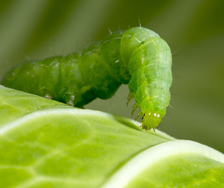
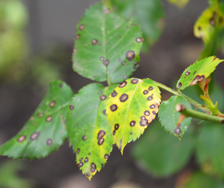
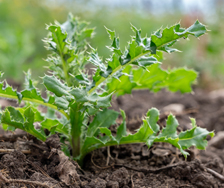
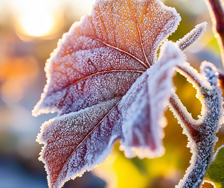
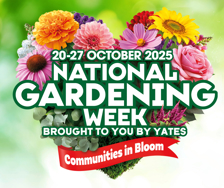


Share
Share this blog on social media